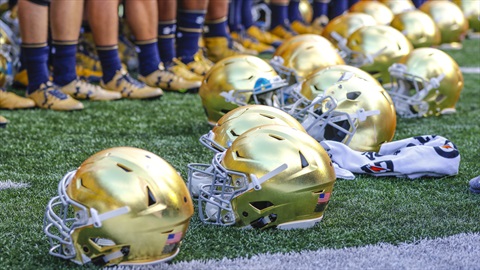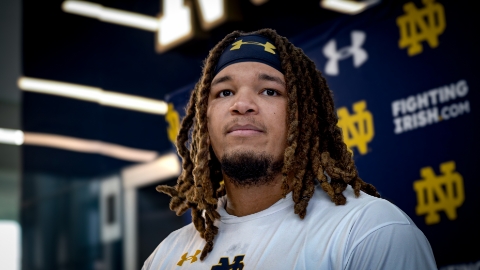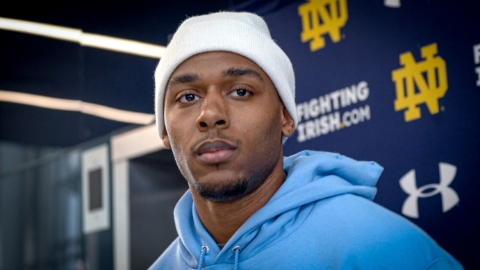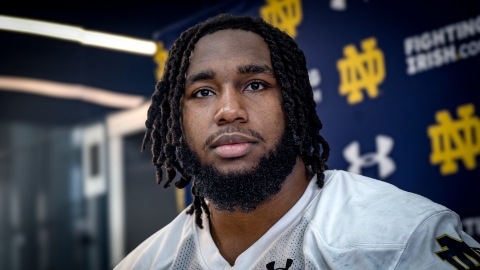‘Growing Pains’ Continue in Marcus Freeman’s First Year at Notre Dame
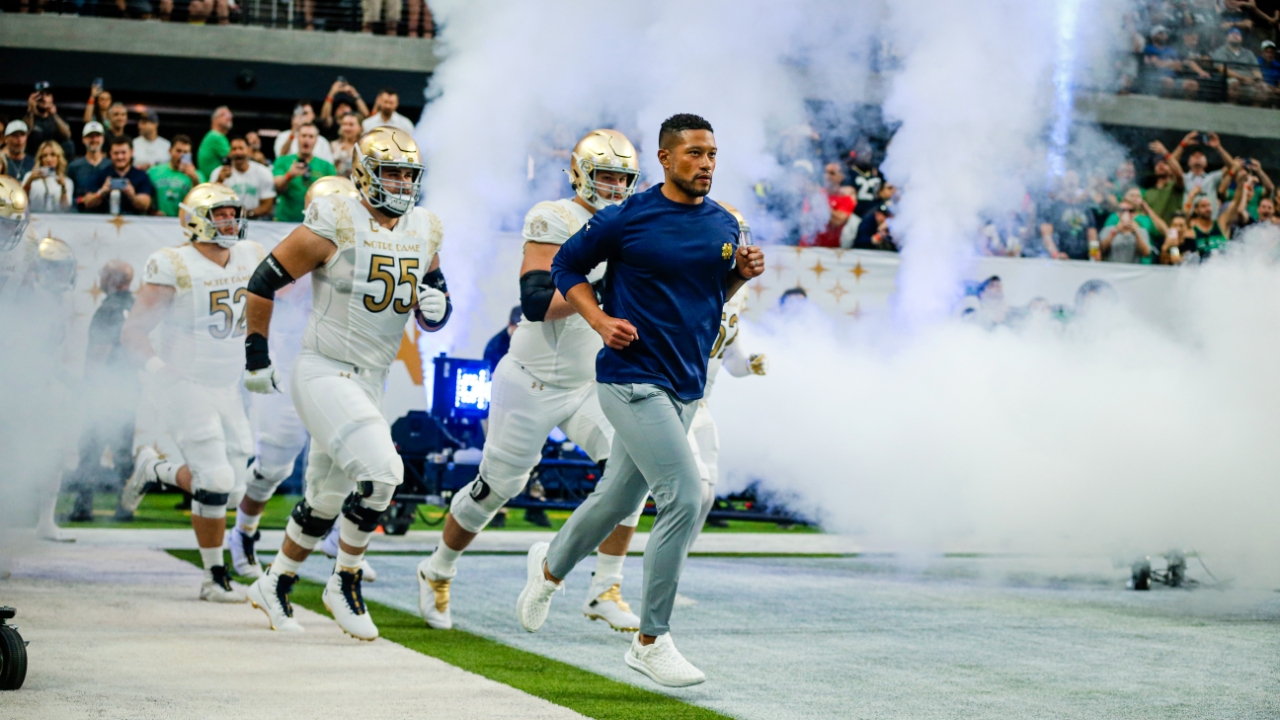
Marcus Freeman is no stranger to tough times.
Purdue won nine games in Freeman’s four years as a linebackers coach. In his first year at Cincinnati in 2017 as a defensive coordinator, the Bearcats went 4-8 and Freeman’s defense gave up 31.8 points per game.
In his next three seasons, the Bearcats went 31-6 and finished each year with a top-25 scoring defense, including No. 8 overall in 2018 and 2020.
At Notre Dame, he’s hoping to do the same.
“I think back to our first year at Cincinnati, it was a struggle,” Freeman said. “That’s what I keep telling myself: to build something the right way. I can’t build on what’s been done in the past. What Coach Kelly did here was tremendous — the wins and the success he had here. But I can’t come in here and say that I have to be Brian Kelly. I’ve got to be Marcus Freeman, and it’s different.”
That’s not to say Freeman’s happy with a 3-3 start to his first full season as the head coach of Notre Dame. Of course, he’s frustrated and disappointed.
Freeman stayed up late after his team’s 16-14 loss to a lousy Stanford team and rewatched the game.
He still came away believing his team played poorly but felt better about the direction of his program. At least he had answers for why his players executed so poorly on offense.
Freeman didn’t feel the same way after the program's 26-21 home loss to Marshall a month ago.
“I was like, ‘I don’t know what’s going on.’ I was struggling,” Freeman said. But after the past three games — the second half of Cal, BYU and North Carolina — I know we have a good football team that we have to get to perform consistently. We have to do it consistently.
“For the culture of this football program, we’re going to have to embrace these tough times and growing pains of getting this program to where we want it to be.”
If Freeman is able to turn around his floundering program, it’ll likely be because of his willingness to be self-critical in the moment. He understands he’s a first-time head coach with a lot to learn. So he picks the brain of Jim Tressel, who went 7-5 in year one at Ohio State before finding immense success thereafter.
He also publicly acknowledges when he acts out of frustration or makes a mistake on the field.
For instance, offensive coordinator Tommy Rees called for a jet sweep to wide receiver Jayden Thomas on fourth and two from the Stanford five-yard line. All week, the coaching staff watched Stanford stack the box in those situations on film, and they expected the same on fourth and two.
“Then all of a sudden I hear Coach Rees over the headset saying, ‘oh shoot that's not the look,’” Freeman said. “I probably at that moment should have called a timeout.”
For the sake of the program, he hopes his humble mentality rubs off on his players and coaches.
“During difficult times and failures, it’s an individual sport,” Freeman said. “We all have to point the finger at ourselves. When we have success, it’s a team sport. Point your finger at your teammate. Those are tough conversations. They’re honest conversations that you have to have because we owe it to this program, we owe it to the seniors, we owe it to our players to execute better.”
And it’s not about executing better for a game or two.
Freeman needs to figure out how to get his team to do so on a consistent basis. This is especially true when playing from the comforts of Notre Dame Stadium, where the Irish are averaging just 19.7 points per game, which ranks 124th out of 131 FBS programs.
“To really establish something that’s special, you’re going to have to go through some challenges and some difficult times,” Freeman said. “I’ve been through them. I’ve been at new places. I’ve been in new situations where you have to hit these tough times. Nobody wants to go through them but I know we’re going to be better because of it.”
